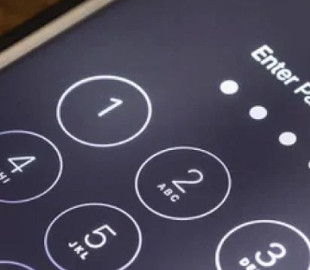
In the era of modern technology and the development of gadgets, almost all people use smartphones and bank cards. Most often, it is for these two areas that a PIN code is needed – a combination of numbers that must be entered before accessing data.
Earlier we talked about how to clear the phone's memory without deleting anything.
What is the most common PIN code for a card and smartphone – a list
Cybersecurity researchers believe that the first place in the ranking of the most popular PIN codes is occupied by the combination “1234”. They believe that if you do not know what PIN code to make, then it is definitely better to refuse this option. Despite the fact that many people still continue to use it, it is still not safe.
The following combinations also made it to the ranking of unsuccessful combinations of numbers: 1111, 0000, 1212, 1004, 2000, 4444, 2222, 6969 and 7777. Experts found that no matter what 4-digit passwords people choose from the options listed above, none of them are reliable. Users of devices and cards with these PIN codes are more likely to experience data leaks than others.
If you realize that you are using one of these combinations, then before thinking about how to remove the PIN code from your SIM card and change it to another, make sure that the new option will be better.
Cybersecurity experts have listed several of the least common combinations of numbers. It cannot be said that these are complex PIN codes for a phone or card, but at least they are less common than those that are on the “red” list. Rare combinations include the following passwords: 8557, 8438, 9539, 7063, 6827, 0859, 6793, 0738, 6835 and 8093.
The decision about which PIN code to put on your phone is up to you, but you definitely shouldn't choose one of the most popular combinations, and you shouldn't use your date of birth. Unfortunately, most often people don't think about the risks and threats until they encounter them themselves – the human factor works “at random”. People are not serious about choosing a password because they don't imagine the scale of the disaster that can occur due to a data leak.

